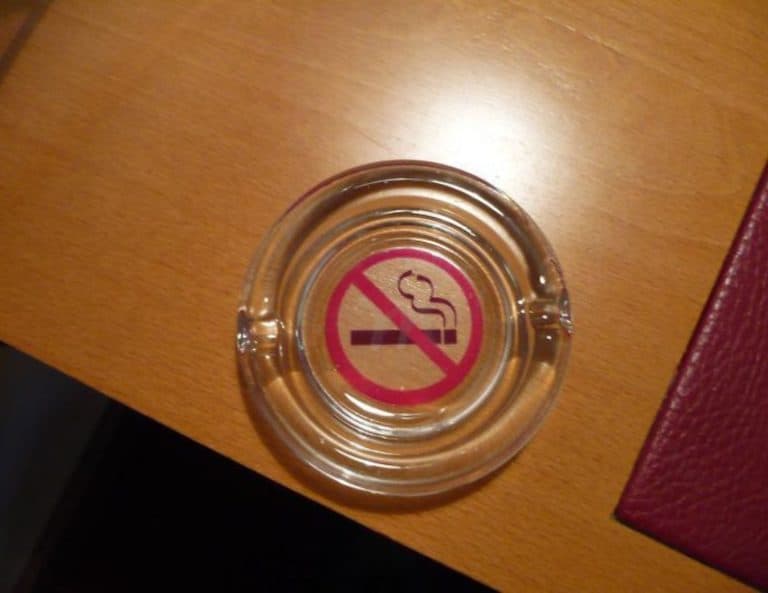The process of booking a hotel room often includes terms and conditions that guests may overlook, including one called ‘pre-authorization’. If you’re short on time, here’s the quick answer: Pre-authorization is a temporary hold placed by hotels on a guest’s credit or debit card to ensure sufficient funds to cover the cost of the stay, including potential incidental charges.
This article delves into the specifics of pre-authorization in hotels, how it works, and what it means for you as a guest.
Understanding Pre-Authorization
Definition of Pre-Authorization
Pre-authorization is a common practice in the hospitality industry, particularly in hotels. It refers to the process of putting a hold on a certain amount of funds on a guest’s credit card or debit card before their stay. This temporary hold ensures that the guest has sufficient funds to cover any potential charges that may arise during their stay, such as room service, mini-bar purchases, or damages to the room.
When a guest checks in, the hotel staff will typically request their credit card information and carry out a pre-authorization process. This involves contacting the guest’s bank or credit card company to verify the availability of funds and placing a hold on a predetermined amount, which can vary depending on the hotel’s policies. The hold is usually released within a few days after the guest checks out, as long as no additional charges arise.
Purpose of Pre-Authorization
The primary purpose of pre-authorization is to protect the hotel against any potential losses or damages caused by guests. By ensuring that guests have sufficient funds to cover additional charges, hotels can minimize the risk of unpaid bills or disputes over charges. This practice allows hotels to maintain financial stability and provide excellent service to their guests without the worry of financial losses.
Pre-authorization also benefits guests by providing them with a convenient and hassle-free experience during their stay. Rather than having to pay for each individual charge separately, guests can enjoy the convenience of charging their expenses to their room and settling the bill upon checkout. This saves time and allows guests to focus on enjoying their stay without constantly worrying about payment.
It’s important to note that pre-authorization is not the same as charging the guest’s card. The hold placed on the funds is temporary and does not result in an actual transaction unless additional charges are incurred. It is merely a precautionary measure to ensure that the guest has sufficient funds available.
How Pre-Authorization Works in Hotels
When you check into a hotel, you may be asked to provide a credit or debit card for pre-authorization. This process is a common practice in the hotel industry to ensure that guests have sufficient funds to cover any incidental charges that may be incurred during their stay. Let’s take a closer look at how pre-authorization works in hotels.
Pre-Authorization Process
The pre-authorization process typically occurs at check-in, where the hotel places a temporary hold on a certain amount of funds on your card. This hold is not an actual charge, but rather a way for the hotel to verify that the card is valid and that there are sufficient funds available. The amount of the pre-authorization hold can vary depending on the hotel’s policy and the length of your stay.
During the pre-authorization period, the funds are still technically in your account but are inaccessible until the hold is released. This can take anywhere from a few days to a couple of weeks, depending on the bank or financial institution.
Incidental Charges
One of the main reasons for pre-authorization is to cover any incidental charges that you may incur during your stay. These charges can include room service, minibar purchases, in-room movies, or any other additional services or amenities you may use. By pre-authorizing a certain amount, the hotel ensures that they have the funds to cover these charges.
It’s important to note that the pre-authorized funds are not automatically deducted from your account unless you actually incur any incidental charges. If you don’t use any additional services or amenities, the hold will eventually be released, and the funds will be available to you again.
Pre-Authorization Amount
The amount that the hotel pre-authorizes can vary depending on the hotel’s policy and the length of your stay. Some hotels may pre-authorize a flat rate per night, while others may pre-authorize a certain percentage of the total stay. It’s also common for hotels to pre-authorize an additional amount as a buffer, to account for any potential incidental charges.
It’s important to keep in mind that the pre-authorized amount is not the same as the final bill. The final bill will be calculated at the end of your stay, taking into account any additional charges or adjustments. The pre-authorization hold will then be released, and the final amount will be charged to your card.
Impact of Pre-Authorization on Guests
Pre-authorization is a common practice in the hotel industry that involves placing a temporary hold on a guest’s credit card to ensure they have enough funds to cover their stay. While this process may seem inconvenient to some, it actually has several benefits for both the hotel and the guest.
Availability of Funds
One of the main reasons hotels implement pre-authorization is to ensure that guests have enough funds to cover their stay. By placing a temporary hold on the guest’s credit card, the hotel can verify that the necessary funds are available before the guest checks in. This helps prevent any unpleasant surprises or potential payment issues during the guest’s stay.
Furthermore, pre-authorization allows guests to budget and plan their expenses accordingly. Knowing that a certain amount will be temporarily held on their credit card can help guests avoid overspending and ensure their funds are allocated appropriately for their stay.
Returning Pre-Authorization Holds
Once the guest checks out and settles their final bill, the pre-authorization hold is typically released. The release process may vary depending on the hotel’s policies and the guest’s credit card issuer. In some cases, the funds may be immediately available, while in others, it may take a few days for the hold to be lifted.
It is important for guests to keep in mind that even though the pre-authorization hold is released, it may still appear as a pending transaction on their credit card statement for a short period. This is a normal part of the process, and the funds will eventually be fully available to the guest.
Potential Issues and Solutions
While pre-authorization is generally a smooth process, there can be occasional issues that arise. For example, if a guest’s credit card has insufficient funds or if there is a technical error during the pre-authorization process, it can lead to complications and delays during check-in.
If you encounter any issues with pre-authorization, it is best to communicate with the hotel staff and your credit card issuer promptly. They can help resolve any problems and ensure a seamless experience for you as a guest. It is also a good idea to keep track of your credit card transactions and statements to ensure that the pre-authorization hold is released properly.
Remember, pre-authorization is a standard practice in the hotel industry designed to protect both the hotel and the guest. It provides peace of mind for the guest, knowing that their funds are secure, while also ensuring that the hotel can operate efficiently. So the next time you check into a hotel and encounter the pre-authorization process, you can rest assured that it is all part of providing you with a great stay.
Tips for Managing Pre-Authorization
Pre-authorization is a common practice in the hotel industry, where a certain amount of money is temporarily held on your credit card or debit card to cover any potential charges during your stay. While pre-authorization is a necessary step in ensuring a smooth check-in process, it’s important to be aware of some tips and best practices to manage it effectively.
Planning for Pre-Authorization
Before your trip, it’s important to plan ahead and understand the pre-authorization policy of the hotel you will be staying at. Check their website or contact their customer service to find out how much they typically pre-authorize and for how long. This will give you an idea of how much money you should have available on your card during your stay.
Pro Tip: Some hotels may have different pre-authorization amounts for different types of rooms or during peak seasons. Make sure to inquire about any potential variations.
Communication with the Hotel
Clear communication with the hotel is key to avoiding any misunderstandings or inconveniences during the pre-authorization process. When making your reservation, ask the hotel about their pre-authorization policy and any specific requirements they may have.
If you have any special requests or concerns, let the hotel know in advance. They may be able to accommodate your needs or provide alternative solutions that can help minimize the impact of the pre-authorization on your finances.
Using Credit Cards over Debit Cards
While both credit cards and debit cards can be used for pre-authorization, it is generally recommended to use a credit card whenever possible. This is because a pre-authorization hold on a credit card does not tie up your actual funds, unlike a debit card where the held amount is deducted from your account balance.
Using a credit card also provides an added layer of security as credit card companies often offer protection against unauthorized charges. In the event of any issues with the pre-authorization, you can dispute the charge with your credit card company and have it resolved more easily.
Pro Tip: If you do use a debit card for pre-authorization, make sure to have sufficient funds in your account to cover the hold. Otherwise, you may face overdraft fees or declined transactions.
Remember, pre-authorization is a standard procedure in the hotel industry, aimed at protecting both the hotel and the guest. By planning ahead, communicating effectively with the hotel, and understanding your payment options, you can ensure a smooth and hassle-free check-in experience.
Conclusion
Pre-authorization in hotels is a standard practice that ensures the cost of your stay, along with any potential incidental charges, are covered. However, it’s crucial for guests to understand how this process works, its impact on the availability of your funds, and ways to manage it effectively. By planning for pre-authorization and communicating effectively with the hotel, you can ensure a smooth check-in process and avoid potential financial hiccups during your stay.






